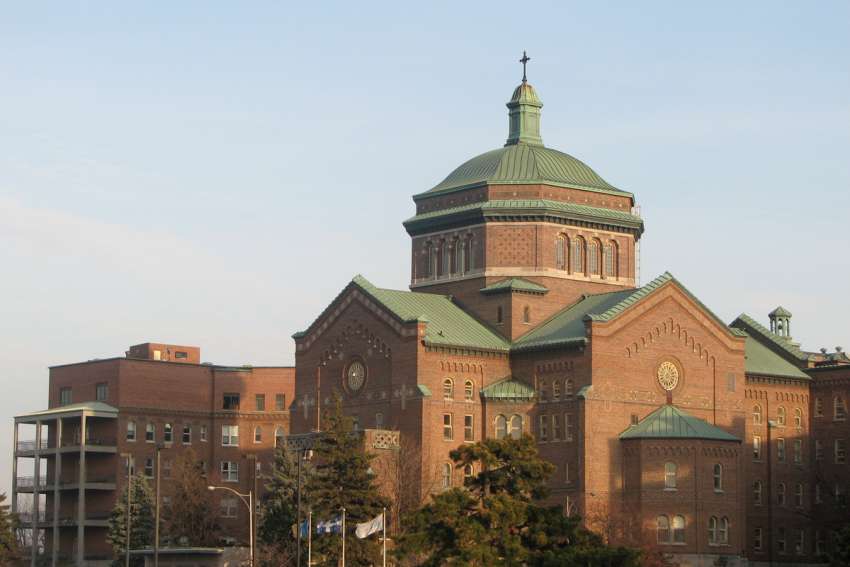On Feb. 1, a Montreal nurse contacted the pro-life group Montreal Against Abortion through the group’s Facebook page saying she was distressed to learn from a colleague that the mother was booked for an abortion the following morning.
“A 38-week abortion, is that still called an abortion?” the nurse asked in a Facebook message.
On the morning of Feb. 2, the whistleblower told Montreal Against Abortion that someone had spoken to the mother about adoption, but that “she hasn't changed her mind.”
“She is now in the operating room,” the whistleblower wrote. “They have already injected the baby.”
Montreal Against Abortion volunteers had by then reached out to staff at Quebec Life Coalition, whose president was able to verify that the source “is listed on a Quebec government site as an auxiliary nurse.”
“Her manner of communicating, her knowledge of the details of the goings on in a hospital, her Facebook profile, all had the markings of authenticity,” QLC President George Buscemi told The Catholic Register.
Quebec Life Coalition announced the death of the baby, whom they named “Daniel,” on their website.
Hospital officials did not respond to The Register’s requests to independently verify the abortion took place, but a Register reporter has viewed the exchange of text messages between the nurse and the pro-life group. In the thread, the nurse said the baby would be euthanized in advance of a caesarean section. The texts identified the mother as a homeless woman with a history of substance abuse. She has children in adoptive care.
The Quebec Life Coalition sent out an e-mail asking for prayers for the mother and aborted child. More than 70 people responded. The QLC later reported on their website that one supporter phoned the hospital to try to communicate to the mother that individuals were ready to adopt her baby.
In an e-mail to Quebec Life Coalition, supporter Marie-Josée Rivest said she was able to speak with a nurse.
“The nurse listened to me, much to my surprise, and then said she would pass on my message to the mother,” Rivest said. “She also said that they were sad about the situation, but that it was the mother's choice and that she had the right to ‘have an abortion’.”
There is no right to abortion in Canada. In 1988, the Supreme Court of Canada in R. v. Morgentaler ruled that the abortion provision in the criminal code was unconstitutional. No law has been subsequently legislated to regulate the provision of abortion. It has been left to the various provincial professional associations of physicians to provide guidance to its members.
In 2016 a Montreal woman sought an abortion at 30 weeks at a McGill University Health Centre after an ultrasound revealed the baby had skeletal malformations. The MUHC ethics committee denied her request. Their ruling was based in part on the guidelines provided by the Quebec College of Physicians, which stipulate late abortions, after 23 weeks, are reserved for “serious congenital anomalies” or “exceptional clinical situations.”
The woman, then 35 weeks pregnant, was able to procure an abortion at another, undisclosed Montreal hospital. The high-profile case forced the Quebec College of Physicians to announce it was revising the guidelines. The current guidelines, due to be revised yet again in November 2023, say that, “for pregnancies of more than 25 weeks, abortion services are offered in certain Quebec hospitals, when it is performed for a medical reason or because of a very specific social condition.”
The whistleblower who contacted the Montreal Against Abortion noted that the situation was described in the pre-op meeting as “a special case.”
Dr. Paul Saba, a high-profile pro-life activist and author of a book detailing the experience of his wife being counselled to abort their youngest child, called it profoundly disturbing if a fully formed baby could be aborted because the mother was homeless and struggling with substance abuse. Saba emphasized he had no personal knowledge of the case, and that he was responding to the social injustice of poverty leading to abortion, not criticizing those involved.
“How can we justify killing the babies of street people because they are poor, homeless or even if they have other problems such as addictions?” Saba said in an interview with The Catholic Register. “These conditions are all fixable. A woman’s baby is not a cancer to be destroyed, but a human life to be cared for and given the best chances for life.”
George Buscemi, of Quebec Life Coalition, said the group has been in contact with Sacré-Coeur but has been told only that the hospital “offers health care services that people need within the framework of legality in Quebec.”
In an interview with The Register, QLC officials said the coalition will ramp up public pressure on federal and provincial politicians to revisit the legal status of abortion in light of “Daniel’s” death.
As attention was brought to the expansion of euthanasia in Canada with the reports of MAiD being offered to the poor and homeless, pro-life leaders hope “Daniel’s” story will alert Canadians to the practice of late-term abortions.
“We have to defend the rights of children and Baby Daniel was a child,” said Saba.


